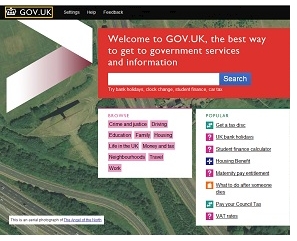The government has named the first public services to go digital, following the publication of 18 individual departmental digital strategies outlining moves to digital by default public services.
The strategies detail how departments will respond to agreed digital actions, including how they will enable in-house digital capability and which transactional services will become the digital by default services.

The first digital by default "examplar" services will include the National Apprenticeship Service, which will allow candidates to search for vacancies online; the department for the Environment, Food and Rural Affairs, which will create a platform for the to change the way farmers apply and receive payments; and Intellectual Property services for entrepreneurs to register, track and manage patents online with the Intellectual Property Office.
HMRC will also see increased digitisation of its online tax self-assessment programme. A new digital service will allow 30 million PAYE taxpayers to report changes affecting their tax code online. The department is also forming its own HMRC Digital Service.
Cabinet Office minister Francis Maude said the move would enable the public to access services at their own convenience. "Today we've set out exactly how we will make it easier for people to do things like apply for pensions and car tax online. As a result we will save people time, money and stress – while making the taxpayer savings in excess of a billion pounds," he said.
According to the Cabinet Office, the Government handles over a billion different transactions across 650 different services. In its digital strategy published last month, the Government Digital Service said £1.7bn would be saved per year through government services going digital.
Tom Loosemore, deputy director at the Cabinet Office's Government Digital Service, wrote in a blog post: "These strategies describe how each department will change to become a digital by default organisation, offering digital services that are so good people prefer them. They also contain hard, actionable deliverables, and do not shirk from tackling the daunting task of transforming key parts of the state's services. From future elections, to tax and social care, there is no ambiguity here," he said.
"It will take some time to digest these strategies, and in Government we have much work to do to build capacity, attract the right skills and suppliers and remove some of the existing process obstacles.
"But for the first time, Government now has a collective ambition level which befits the expectations of our users in a digital age," he added.





